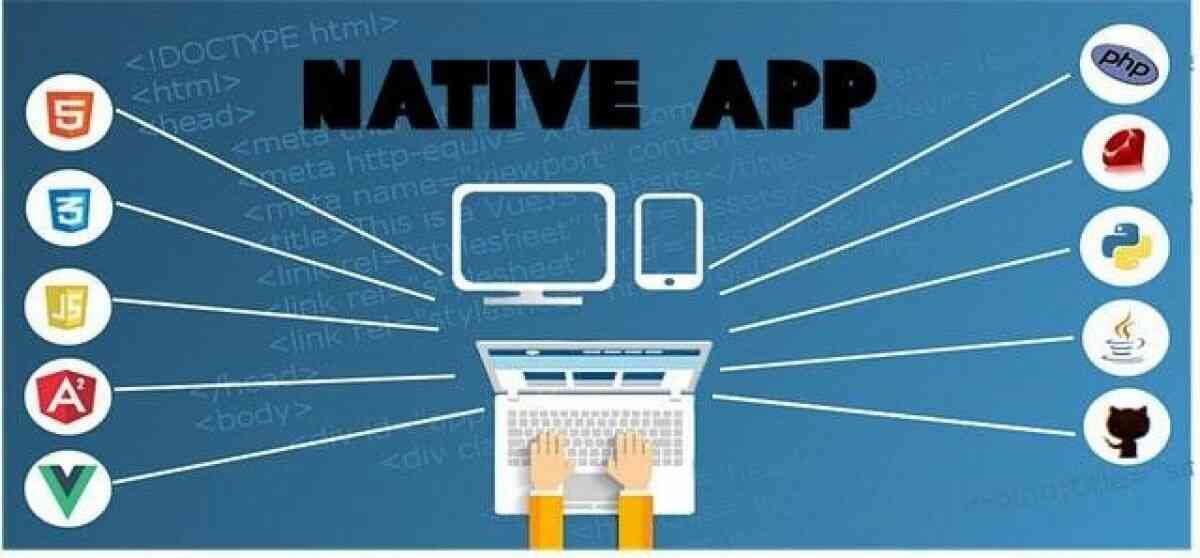The Top 5 Advantages Of Native Mobile App Development
- - Category: Technology
- - 24 Aug, 2021
- - Views: 630
- Save

Advantages of a Native App Native apps are typically faster and have more features than hybrid apps.
What is native mobile application development?
Native mobile app development entails creating apps for specific mobile operating systems, which users can download from specialized app stores (such as the App Store or Google Play). If you want to make an app for iOS, you'll need to use the programming languages Objective-C or Swift. Developing on Android, on the other hand, necessitates the use of the Java or Kotlin programming languages. Apple and Google offer app developers their own set of development tools, UI components, and SDKs. Most businesses will engage in native mobile app development due to the numerous advantages over other apps such as hybrid or web.
The top 5 advantages of native mobile app development
Native apps deliver the best results.
The app is designed and customized for a specific platform with native mobile app development. As a result, the app operates at a very high degree of efficiency. Because native apps are created for a single platform and compiled using its core programming language and APIs, they are swift and responsive. As a result, the software is far more effective. The app is stored on the device, allowing the software to take advantage of the device's computing power. The contents and visual elements of a native mobile app are already stored on the user's phone, resulting in fast load times.
Native Apps are more secure than web apps.
Different browsers and underlying technologies such as JavaScript, HTML5, and CSS are used in web apps. Creating a native mobile app is an excellent method to provide your users with secure data security.
Native apps are more interactive and intuitive than web-based apps.
In terms of user input and output, native mobile apps run significantly more smoothly. These apps take on their device's OS interfaces, giving them the appearance of being a fully integrated part of the device. The best reason to utilize native mobile apps is the better user experience. Native apps are those that are designed expressly for a particular operating system. They follow the rules, which help to improve and align the user experience with the operating system. As a result, the app's flow is more natural because each platform has its UI standards. This allows the user to quickly learn how to use the program, such as deleting an element. Following a set of rules reduces the learning curve and lets users interact with apps using actions and gestures that they are already accustomed to.
Native apps provide developers access to a device's whole feature set.
Native apps are created specifically for a platform, utilizing all of the software and operating system characteristics. Because these apps have direct access to the device's hardware, such as the GPS, camera, and microphone, they are faster to execute, resulting in a better user experience. Another significant benefit of native app development is push notifications. Push notifications are sent through the iOS server (APNS), which requires your app bundle ID, and Google Cloud Messaging is the same (GCM).
During the development of a native app, there are fewer bugs.
Maintaining two different applications in one codebase is substantially more challenging than supporting two applications in two codebases. Because you're not using a cross-platform solution like Xamarin or Cordova, you're less likely to encounter errors with native app development. Hybrid apps connect to hardware via a bridge, slowing down growth and creating a terrible user experience. When new versions of Android and iOS are launched, this problem becomes more noticeable. Native app developers can now use new software development kits (SDK) to develop apps with the most up-to-date capabilities. Users of native programs gain access to new platform capabilities whenever the operating system is updated because of this lead time.
The problem of needing to wait for the bridge to new operating system features to be implemented by the hybrid tool's third-party developer. We rely on a cross-platform development tool like Xamarin or Cordova for hybrid app development. Every time a new feature in the UI kit is published, we must wait for the device to support it. When developing a hybrid software, there is an additional layer over which you have no control, increasing the likelihood of errors. Bugs are a significant problem for hybrid app development when dealing with the most recent features published for a particular operating system. This is an essential but often overlooked aspect of creating user loyalty.
Endnote
Native app development gives software development services providers far greater control over the user experience and the ability to design programs that are simple to support. We feel that staying local is the best way to preserve the unique design aspects of each platform. On the other hand, a web app may be the way to go if you don't care about the whole user experience and just want to get something to market quickly and cheaply.

